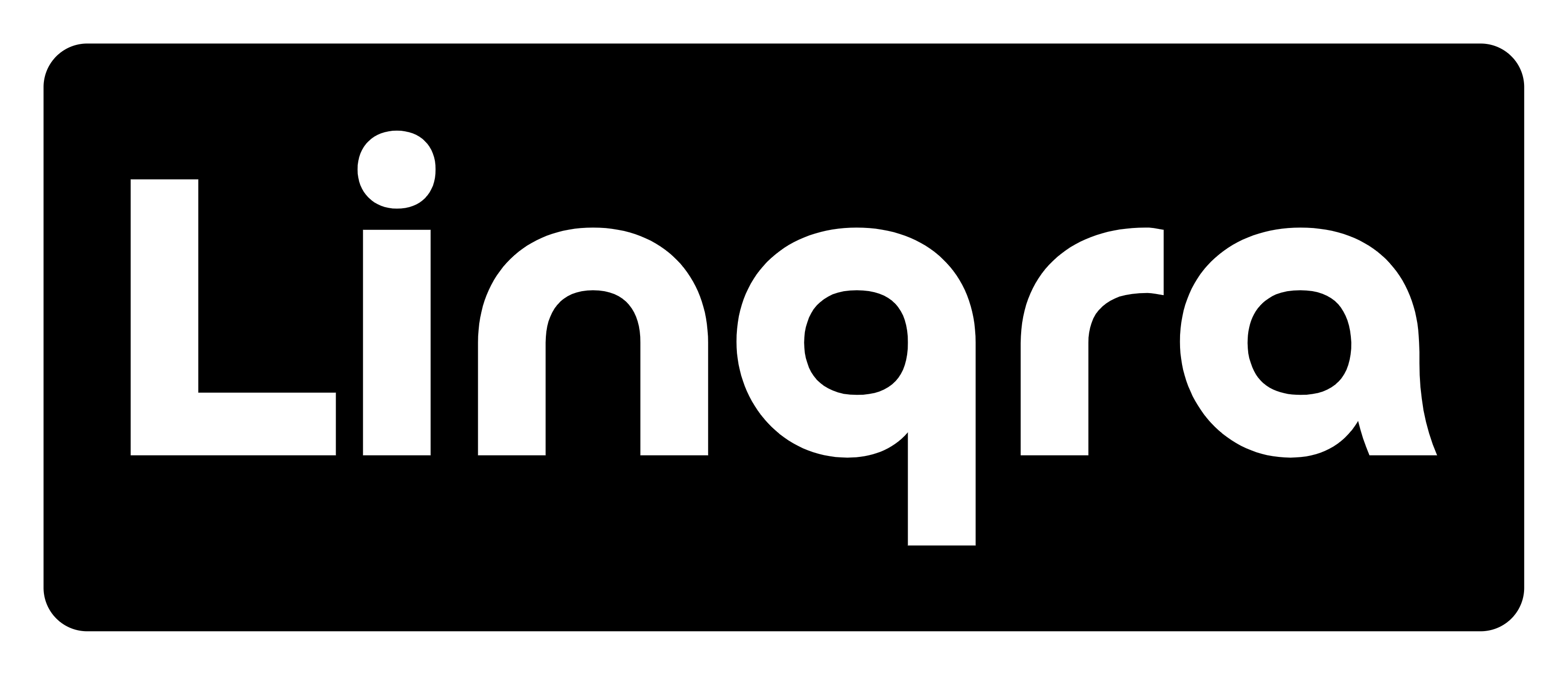Core Components Linqra consists of three main components that work together to provide a complete API management solution:
Discovery Server The Discovery Server is built on Netflix Eureka and serves as the service registry for your microservices architecture. It:
Enables dynamic service discovery
Maintains a registry of available services
Facilitates automatic routing by resolving service addresses
Supports high availability and fault tolerance
API Gateway The API Gateway is the central component of the Linqra ecosystem. It:
Manages all incoming API requests
Implements dynamic routing based on service discovery
Provides built-in resilience patterns
Handles security and authentication
Supports both traditional REST APIs and AI endpoints
Edge Service The Edge Service provides a web-based user interface for monitoring and managing your API ecosystem:
Displays detailed metrics and statistics
Monitors service health and performance
Provides real-time analytics
Offers configuration management capabilities
Security Configuration Linqra uses SSL/TLS certificates for secure communication between components. For development environments, you can:
Self-Signed Certificates Generate and configure self-signed certificates for local development
For production environments, we recommend using certificates from a trusted Certificate Authority (CA).
Installation Options You can install Linqra components either as standalone applications or using containers.
Docker Compose Configuration Containerized Setup All required technologies are available as containerized solutions for easy deployment:
Available Containers: - MongoDB (3-node replica set ) - Redis - Keycloak - PostgreSQL (for Keycloak ) - Eureka Server
The complete tech stack can be deployed using the following Docker Compose configuration:
version : '3.8' networks : default : linqra-network : driver : bridge name : linqra-network # Explicitly set the network name services : # postgres postgres-service : build : context : . dockerfile : ./.kube/postgres/Dockerfile command : postgres -c "max_connections=200" restart : always ports : - "5432:5432" healthcheck : test : [ "CMD-SHELL" , "pg_isready -U ${POSTGRES_USER} -d ${POSTGRES_DB}" ] interval : 10s timeout : 3s retries : 3 volumes : - ./.kube/postgres/data/:/var/lib/postgresql/data environment : POSTGRES_DB : keycloak POSTGRES_USER : keycloak POSTGRES_PASSWORD : password networks : - linqra-network # postgres admin pgadmin-service : build : context : . dockerfile : ./.kube/pgadmin/Dockerfile restart : always ports : - "9090:80" environment : PGADMIN_DEFAULT_EMAIL : [email protected] PGADMIN_DEFAULT_PASSWORD : strong-password volumes : - ./.kube/pgadmin/data/:/var/lib/pgadmin networks : - linqra-network # keycloak keycloak-service : build : context : . dockerfile : ./.kube/keycloak/Dockerfile environment : KC_DB : postgres KC_DB_URL : jdbc:postgresql://postgres-service:5432/keycloak KC_DB_USERNAME : keycloak KC_DB_PASSWORD : password KC_HTTP_ENABLED : true KC_HTTP_PORT : 8080 KC_HOSTNAME_STRICT : false KC_LOG_LEVEL : info KC_METRICS_ENABLED : true KC_HEALTH_ENABLED : true KEYCLOAK_ADMIN : admin KEYCLOAK_ADMIN_PASSWORD : admin command : - start-dev - --import-realm - --export-realm volumes : - .kube/keycloak/data/import:/opt/keycloak/data/import - .kube/keycloak/data/export:/opt/keycloak/data/export depends_on : postgres-service : condition : service_healthy healthcheck : test : [ "CMD-SHELL" , "exec 3<>/dev/tcp/127.0.0.1/9000;echo -e 'GET /health/ready HTTP/1.1 \r\n host: http://localhost \r\n Connection: close \r\n\r\n ' >&3;if [ $? -eq 0 ]; then echo 'Healthcheck Successful';exit 0;else echo 'Healthcheck Failed';exit 1;fi;" ] interval : 10s timeout : 3s retries : 3 ports : - "8281:8080" networks : - linqra-network # mongodb nodes mongodb1 : deploy : resources : limits : cpus : '1.0' memory : 1G build : context : . dockerfile : ./.kube/mongodb/Dockerfile container_name : mongodb1 environment : MONGO_INITDB_ROOT_USERNAME : root MONGO_INITDB_ROOT_PASSWORD : mongopw MONGO_REPLICA_SET_NAME : rs0 ports : - "27017:27017" volumes : - ./.kube/mongodb/data1/:/data/db - ./.kube/mongodb/mongo-keyfile:/data/mongo-keyfile networks : - linqra-network command : mongod --bind_ip_all --replSet rs0 --port 27017 -keyFile /data/mongo-keyfile mongodb2 : deploy : resources : limits : cpus : '1.0' memory : 1G build : context : . dockerfile : ./.kube/mongodb/Dockerfile container_name : mongodb2 environment : MONGO_INITDB_ROOT_USERNAME : root MONGO_INITDB_ROOT_PASSWORD : mongopw MONGO_REPLICA_SET_NAME : rs0 ports : - "27018:27018" volumes : - ./.kube/mongodb/data2/:/data/db - ./.kube/mongodb/mongo-keyfile:/data/mongo-keyfile networks : - linqra-network command : mongod --bind_ip_all --replSet rs0 --port 27018 -keyFile /data/mongo-keyfile mongodb3 : deploy : resources : limits : cpus : '1.0' memory : 1G build : context : . dockerfile : ./.kube/mongodb/Dockerfile container_name : mongodb3 environment : MONGO_INITDB_ROOT_USERNAME : root MONGO_INITDB_ROOT_PASSWORD : mongopw MONGO_REPLICA_SET_NAME : rs0 ports : - "27019:27019" volumes : - ./.kube/mongodb/data3/:/data/db - ./.kube/mongodb/mongo-keyfile:/data/mongo-keyfile networks : - linqra-network command : mongod --bind_ip_all --replSet rs0 --port 27019 -keyFile /data/mongo-keyfile # redis redis-service : build : context : . dockerfile : ./.kube/redis/Dockerfile environment : REDIS_GATEWAY_URL : redis-service ports : - "6379:6379" volumes : - ./.kube/redis/data/:/var/lib/redis/data - ./.kube/redis/redis.conf:/usr/local/etc/redis/redis.conf command : [ "redis-server" , "/usr/local/etc/redis/redis.conf" ] networks : - linqra-network
Make sure to update the environment variables and passwords according to your security requirements before deploying to production.
Tech Stack Linqra’s architecture is built on a robust set of technologies, each serving a specific purpose in the ecosystem:
Component Technology Purpose Database MongoDB Primary data storage Cache Redis High-performance caching Identity Provider Keycloak Authentication and authorization Supporting Database PostgreSQL Keycloak data storage Service Discovery Eureka Service registry and discovery
All these components are available as containerized solutions for easy deployment and scaling.
Database Layer Identity Management
Keycloak Identity and Access Management solution Uses PostgreSQL for data storage (database choice configurable)
If your organization already has an Identity Provider set up, you can integrate it with Linqra. Otherwise, we provide a containerized Keycloak setup with PostgreSQL.



